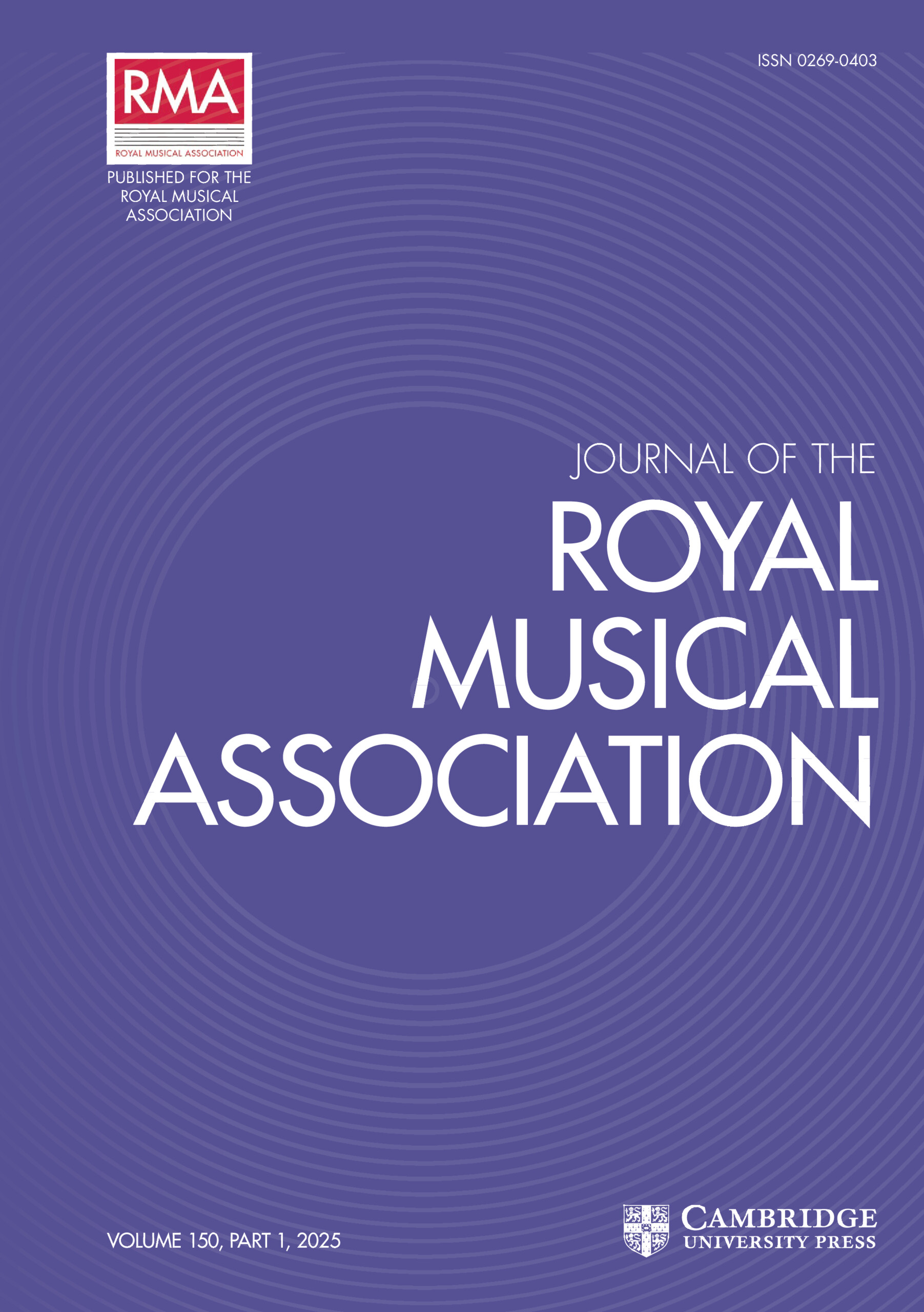Joseph Browning ([email protected]) is a Senior Lecturer in Music in the Department of Performing Arts, City, University of London. His work explores issues at the intersections between music studies, the environmental humanities and anthropology, and has appeared in journals including Ethnomusicology, the Journal of the Royal Musical Association, Organised Sound and Twentieth-Century Music.
T. F. Coombes ([email protected]) is a Lecturer in Music at St Hugh’s College and Exeter College, University of Oxford. He is primarily a cultural historian of music in late nineteenth- and early twentieth-century France, with particular interests in questions concerning childhood, dance and embodiment. His research has been published in journals including Music & Letters, Cambridge Opera Journal and the Journal of the Royal Musical Association. He is currently preparing a monograph on the significance of music for the cultural history of childhood in France between 1870 and 1925.
Dunya Habash ([email protected]) is an affiliated researcher at the Woolf Institute who recently completed her PhD in ethnomusicology at the Faculty of Music, University of Cambridge. Through a Cambridge Trust scholarship and under the supervision of Dr Matthew Machin-Autenrieth, her ethnographic research with Syrian musicians in Turkey examined the effects of ‘integration’ on music-making and more generally on Syrian cultural practices and imaginaries post-displacement.
Fatima Lahham ([email protected]) is a musician and researcher based in London. She recently completed her PhD at the University of Cambridge, where her AHRC-funded project was on decolonial approaches to historical improvisation practices. She has lectured at Royal Holloway and the Royal College of Music, and currently works as a researcher at the music therapy charity Nordoff and Robbins. Her album ‘bulbul’ is available on most platforms, and she is currently working on her first book project.
Jeffrey Levenberg ([email protected]) was Assistant Professor at the Chinese University of Hong Kong from 2015 to 2021, where he hosted an international conference on ‘Music between China and the West in the Age of Discovery’. He has held a Berenson Fellowship at Villa I Tatti, the Harvard University Center for Italian Renaissance Studies. His research centres on Carlo Gesualdo’s reception history and more broadly concerns global musicology.
Liza Lim ([email protected]) is Professor of Composition and Sculthorpe Chair of Australian Music at the Sydney Conservatorium of Music, University of Sydney. For more information, see www.lizalimcomposer.com.
Matthias Range ([email protected]) is a post-doctoral researcher at the Faculty of Music, University of Oxford. He has published widely in both history and musicology, covering the sixteenth to the twentieth century. A particular focus of his interdisciplinary research is the history of the British monarchy, the topic of his major publications: Music and Ceremonial at British Coronations (2012), British Royal and State Funerals (2016), British Royal Weddings: From the Stuarts to the Early Twentieth Century (2022) and British Royal Weddings: The House of Windsor (forthcoming, 2024).
Ryan Ross ([email protected]) is Associate Professor at Mississippi State University, where he teaches music history and appreciation courses and manages the local orchestra. His research interests include English and symphonic music of the late nineteenth and twentieth centuries. He is a presenter at national and international conferences, and has authored articles and reviews for about a dozen journals. His reference book, Ralph Vaughan Williams: A Research and Information Guide, was published by Routledge in 2016.
James Savage-Hanford ([email protected]) was awarded his PhD from Royal Holloway, University of London in 2020, with a thesis on George Enescu’s later chamber music. His current research focuses on modernist aesthetics and issues of national identity, particularly in relation to twentieth-century repertoire from Poland and Romania. He is the founder and co-curator of the Polish Music Since 1900 Research Network and, alongside his writing and research, he is also a professional tenor.


